Your search “Keep the Death Penalty Abolished fin the Philippfines /page/www.centaurtheatre.com ”
Page(s)
Legal information
on 20 November 2020
Credits This website is published by the World Coalition Against the Death Penalty. Director: Aurélie PlaçaisProgram Manager: Bronwyn DudleyAdministrative and Financial Manager: Wilfred GondoroLogisitics and Partnership Manager: Carlos ValeraWeb-Editor: Hédia Zaalouni Development and production: Moduloo (J Villalard)Graphic design: Les poulets bicyclettes Hosting : OVH Copyright informationThe contents of this website is licensed under a Creative Commons license which gives […]
2020
Document(s)
Note verbale dated 11 March 2011 from the Permanent Mission of Egypt to the United Nations addressed to the Secretary-General
By United Nations, on 8 September 2020
2020
United Nations report
Afghanistan
Antigua and Barbuda
Bahamas
Bahrain
Bangladesh
Barbados
Botswana
Brunei Darussalam
Central African Republic
Chad
China
Democratic People's Republic of Korea
Democratic Republic of the Congo
Dominica
Egypt
Equatorial Guinea
Eritrea
Eswatini
Ethiopia
Grenada
Guinea
Guyana
Indonesia
Iran (Islamic Republic of)
Iraq
Jamaica
Kuwait
Lao People's Democratic Republic
Libya
Malaysia
Moratorium
Myanmar
Niger
Nigeria
Oman
Pakistan
Papua New Guinea
Qatar
Saint Kitts and Nevis
Saint Lucia
Saint Vincent and the Grenadines
Saudi Arabia
Sierra Leone
Singapore
Solomon Islands
Somalia
Sudan
Syrian Arab Republic
Tonga
Trinidad and Tobago
Uganda
United Arab Emirates
Yemen
Zimbabwe
aresfrruzh-hantMore details See the document
The permanent missions to the United Nations in New York listed below have the honour to refer to General Assembly resolution 65/206, entitled “Moratorium on the use of the death penalty”, which was adopted by the Third Committee on 11 November 2010, and subsequently by the General Assembly on 21 December 2010 by a recorded vote. The permanent missions wish to place on record that they are in persistent objection to any attempt to impose a moratorium on the use of the death penalty or its abolition in contravention of existing stipulations under international law, for the following reasons:
- Document type United Nations report
- Countries list Afghanistan / Antigua and Barbuda / Bahamas / Bahrain / Bangladesh / Barbados / Botswana / Brunei Darussalam / Central African Republic / Chad / China / Democratic People's Republic of Korea / Democratic Republic of the Congo / Dominica / Egypt / Equatorial Guinea / Eritrea / Eswatini / Ethiopia / Grenada / Guinea / Guyana / Indonesia / Iran (Islamic Republic of) / Iraq / Jamaica / Kuwait / Lao People's Democratic Republic / Libya / Malaysia / Myanmar / Niger / Nigeria / Oman / Pakistan / Papua New Guinea / Qatar / Saint Kitts and Nevis / Saint Lucia / Saint Vincent and the Grenadines / Saudi Arabia / Sierra Leone / Singapore / Solomon Islands / Somalia / Sudan / Syrian Arab Republic / Tonga / Trinidad and Tobago / Uganda / United Arab Emirates / Yemen / Zimbabwe
- Themes list Moratorium
- Available languages مذكرة شفوية مؤرخة 11 آذار/مارس 2011 موجَّهة إلى الأمين العام من البعثة الدائمة لمصر لدى الأمم المتحدةNota verbal de fecha 11 de marzo de 2011 dirigida al Secretario General por la Misión Permanente de Egipto ante las Naciones UnidasNote verbale datée du 11 mars 2011, adressée au Secrétaire général par la Mission permanente de l’Égypte auprès de l’Organisation des Nations UniesВербальная нота Постоянного представительства Египта при Организации Объединенных Наций от 11 марта 2011 года на имя Генерального секретаря2011年3月11日埃及常驻联合国代表团给秘书长的普通照会
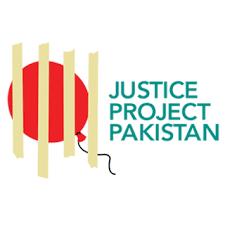
Member(s)
Justice Project Pakistan (JPP)
on 30 April 2020
Justice Project Society, commonly referred to as Justice Project Pakistan (JPP), represents the most vulnerable Pakistani prisoners facing the harshest punishments at home and abroad, including those facing the death penalty, mentally ill prisoners, juvenile prisonners, women, victims of police torture, and overseas Pakistani prisoners. JPP was the winner of the 2016 Franco-German Human Rights […]
2020
Pakistan
Member(s)
Kurdistan Human Rights Association-Geneva (KMMK-G)
on 30 April 2020
Kurdistan Human Rights Association-Geneva (KMMK-G) is an independent organization, with no political affiliation. KMMK-G was established in 2006 to serve as a bridge between the Kurdish civil society and the United Nations (UN) agencies and International institutions on the one hand, and the Kurdish and Iranian civil society on the other hand. The organization aims […]
Iran (Islamic Republic of)
Document(s)
EVALUATING FAIRNESS AND ACCURACY IN STATE DEATH PENALTY SYSTEMS: The Georgia Death Penalty Assessment Report: An Analysis of Georgia’s Death Penalty Laws, Procedures, and Practices
By American Bar Association, on 1 January 2006
2006
NGO report
More details See the document
To assess fairness and accuracy in Georgia’s death penalty system, the Georgia Death Penalty Assessment Team researched twelve issues: (1) collection, preservation, and testing of DNA and other types of evidence; (2) law enforcement identifications and interrogations; (3) crime laboratories and medical examiner offices; (4) prosecutorial professionalism; (5) defense services; (6) the direct appeal process; (7) state postconviction proceedings; (8) clemency; (9) jury instructions; (10) judicial independence; (11) the treatment of racial and ethnic minorities; and (12) mental retardation and mental illness. The Georgia Death Penalty Assessment Report summarizes the research on each issue and analyzes the level of compliance with the relevant ABA Recommendations.
- Document type NGO report
Document(s)
EVALUATING FAIRNESS AND ACCURACY IN STATE DEATH PENALTY SYSTEMS: The Alabama Death Penalty Assessment Report: An Analysis of Alabama’s Death Penalty Laws, Procedures, and Practices
By American Bar Association, on 1 January 2006
NGO report
More details See the document
To assess fairness and accuracy in Alabama’s death penalty system, the Alabama Death Penalty Assessment Team researched twelve issues: (1) collection, preservation, and testing of DNA and other types of evidence; (2) law enforcement identifications and interrogations; (3) crime laboratories and medical examiner offices; (4) prosecutorial professionalism; (5) defense services; (6) the direct appeal process; (7) state postconviction proceedings; (8) clemency; (9) jury instructions; (10) judicial independence; (11) the treatment of racial and ethnic minorities; and (12) mental retardation and mental illness. The Alabama Death Penalty Assessment Report summarizes the research on each issue and analyzes the level of compliance with the relevant ABA Recommendations.
- Document type NGO report
Document(s)
EVALUATING FAIRNESS AND ACCURACY IN STATE DEATH PENALTY SYSTEMS: The Arizona Death Penalty Assessment Report: An Analysis of Arizona’s Death Penalty Laws, Procedures, and Practices
By American Bar Association, on 1 January 2006
NGO report
More details See the document
To assess fairness and accuracy in Arizona’s death penalty system, the Arizona Death Penalty Assessment Team researched twelve issues: (1) collection, preservation, and testing of DNA and other types of evidence; (2) law enforcement identifications and interrogations; (3) crime laboratories and medical examiner offices; (4) prosecutorial professionalism; (5) defense services; (6) the direct appeal process; (7) state postconviction proceedings; (8) clemency; (9) jury instructions; (10) judicial independence; (11) the treatment of racial and ethnic minorities; and (12) mental retardation and mental illness. The Arizona Death Penalty Assessment Report summarizes the research on each issue and analyzes the State’s level of compliance with the relevant ABA Recommendations.
- Document type NGO report
Document(s)
India and the Death Penalty Using the Media: How an Event Can Influence the Establishment of the Death Penalty
By Ensemble contre la peine de mort (ECPM), on 1 January 2017
2017
NGO report
More details See the document
- Document type NGO report
- Themes list Public debate, Member organizations, Death Penalty,

Article(s)
Expanded Ban on Death Penalty for Intellectually Disabled People in California
By Louis Linel, on 1 September 2020
The California State Legislature extended the ban on capital punishment for intellectually disabled people
2020
Intellectual Disability
United States
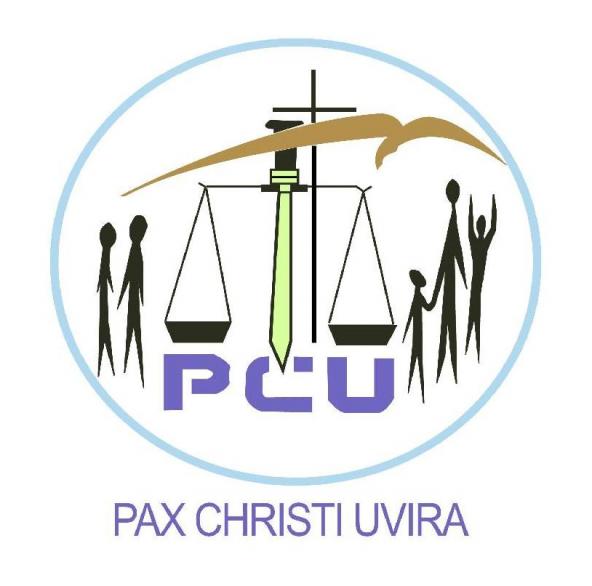
Member(s)
Pax Christi Uvira asbl
on 30 April 2020
Pax Christi Uvira is a non-profit association (asbl) created in 2003 in Uvira (Diocese of Uvira) in the province of South Kivu, in the east of the Democratic Republic of Congo. It joins the World Catholic Movement for Peace, PAX CHRISTI INTERNATIONAL, as a local group. It is an NGO under Congolese law (with legal […]
2020
Democratic Republic of the Congo
Document(s)
Breaking new ground: The need for a protocol to the African Charter on the abolition of the death penalty in Africa
By Lilian Chenwi / African Human Rights Law Journal, on 1 January 2005
2005
Article
More details See the document
The question addressed in this article is whether there is need for a protocol on the abolition of the death penalty in Africa. The African Charter on Human and Peoples’ Rights (African Charter)2 makes no mention of the death penalty or the need to abolish it.3 Further, only six African states have ratified the Second Optional Protocol to the International Covenant on Civil and Political Rights (ICCPR), aiming at the abolition of the death penalty. Since the protocol would, most likely, take into consideration the unique problems of the continent, it stands a better chance of effectively supplementing the provisions of the African Charter than the Second Optional Protocol.
- Document type Article
- Themes list Public debate,
Article(s)
Portraits of the death penalty
on 26 February 2010
Since 2006, US-based French photographer Caroline Planque has been working on a series of portraits of indirect victims of the death penalty in the US State with the highest number of executions – Texas.
2010
United States

Article(s)
China: Judicial guidelines to curtail activism for Taiwan a further blow for human rights protections
By Amnesty International, Anti-Death Penalty Asia Network, Capital Punishment Justice Project, the Rights Practice and the World Coalition Against the Death Penalty, on 1 August 2024
Taken from the declaration posted on Amnesty International’s web page found here. “Amnesty International and four other organizations are alarmed by the recent publication by the Chinese authorities of new judicial guidelines providing directives to prosecute and harshly punish, including by the death penalty, those advocating and acting for Taiwan’s independence. The guidance effectively encourages […]
2024
China
Document(s)
The Death Penalty in the OSCE Area: Background Paper 2022
By Organization for Security and Co-operation in Europe, on 7 October 2022
2022
Regional body report
More details See the document
This paper updates The Death Penalty in the OSCE Area: Background Paper 2021. It is intended to provide a concise update to highlight changes in the status of the death penalty in OSCE participating States since the previous publication and to promote constructive discussion of the issue. It covers the period from 1 April 2021 to 31 March 2022.
- Document type Regional body report
Document(s)
The People Decide: The Effect of the Introduction of the Quasi-Jury System (Saiban-In Seido) on the Death Penalty in Japan
By Leah Ambler / Northwestern Journal of International Human Rights, on 1 January 2007
2007
Article
Japan
More details See the document
This article examines the potential impact of the new lay assessor system, or saiban-in seido, on capital punishment in Japan, and considers whether it may reduce death sentences to the point of effectively abolishing them at trial stage in the District Court. The article posits that the introduction of the lay assessor system may create the momentum for Japan to align its criminal justice system with that of other developed countries—that is, abolition of the death penalty as an available criminal sanction.
- Document type Article
- Countries list Japan
- Themes list Networks,
Document(s)
A/HRC/42/28 – Capital punishment and the implementation of the safeguards guaranteeing protection of the rights of those facing the death penalty
By Human Rights Council, on 8 September 2020
2020
United Nations report
rufrzh-hantarMore details See the document
The present report is submitted pursuant to resolution 36/17,of the Human Rights Council. The report examines the consequences arising at various stages of the imposition and application of the death penalty on the enjoyment of the human rights of persons facing the death penalty and other affected persons. It pays specific attention to the impact of the resumption of the use of the death penalty on human rights
- Document type United Nations report
- Themes list International law, Death Penalty,
- Available languages A/HRC/42/28 - Смертная казнь и осуществление мер, гарантирующих защиту прав лиц, приговоренных к смертной казниA/HRC/42/28 - Peine capitale et application des garanties pour la protection des droits des personnes passibles de la peine de mortA/HRC/42/28 - 死刑和保护死刑犯权利的保障措施的执行情况عقوبة الإعوداموتنفيو الضومات الويتكفو حمايوةحقووقالو ي يواجهوونعقوبة الإعدام - A/HRC/42/28
Document(s)
Leaflet on the Protocol to the African Charter on Human and Peoples’ Rights on the Abolition of the Death Penalty
By FIACAT, on 1 January 2017
2017
Multimedia content
enfrMore details Download [ pdf - 345 Ko ]
To supplement and strengthen the provisions of the African Charter on Human and Peoples’ Rights, Article 66 of the Charter authorises the adoption of Protocols or special agreements. It is on this basis that the African Commission on Human and Peoples’ Rights (ACHPR) – the African Union (AU) authority responsible for promoting and protecting human rights in Africa – proposed that the AU adopt a specific Protocol on the abolition of the death penalty that specifies that “the right to life is the foundation of all the other rights” and that “the abolition of the death penalty is vital for the effective protection” of this right.
- Document type Multimedia content
- Themes list International law, Moratorium , Public debate, Trend Towards Abolition, Death Penalty,
- Available languages Portuguese : Projecto de protocolo adicional à carta Africana dos direitos humanos e dos povos acerca da abolição da pena de morte em AfricaBrochure sur le Protocole additionnel à la Charte africaine des droits de l’homme et des peuples portant sur l’abolition de la peine de mort en Afrique
Document(s)
God and the Executioner: The Influence of Western Religion on the Use of the Death Penalty
By Davison M. Douglas / William and Mary Bill of Rights Journal, on 1 January 2000
2000
Article
United States
More details See the document
In this essay, Professor Douglas conducts an historical review of religious attitudes toward capital punishment and the influence of those attitudes on the state’s use of the death penalty. He surveys the Christian Church’s strong support for capital punishment throughout most of its history, along with recent expressions of opposition from many Protestant, Catholic, and Jewish groups. Despite this recent abolitionist sentiment from an array of religious institutions, Professor Douglas notes a divergence of opinion between the “pulpit and the pew” as the laity continues to support the death penalty in large numbers. Professor Douglas accounts for this divergence by noting the declining influence of religious organizations over the social policy choices of their members. He concludes that the fate of the death penalty in America will therefore “most likely be resolved in the realm of the secular rather than the sacred.
- Document type Article
- Countries list United States
- Themes list Religion ,
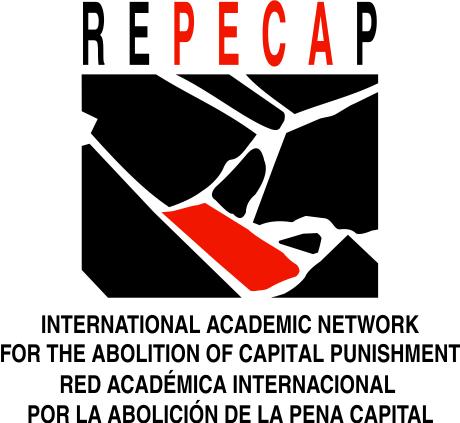
Member(s)
International Academic Network for the Abolition of Capital Punishment (REPECAP)
on 30 April 2020
REPECAP was founded in 2009 with the aim of supporting preparations for the creation of the International Commission against the Death Penalty that was created a year later. We represent a non-governmental organization whose purpose is of academic nature for the dissemination of scientific knowledge impartially through its many nodes present at prestigious Universities around […]
2020
Spain

Member(s)
Themis Fund / The 8th Amendment Project
on 30 April 2020
Mandate and goals : Abolition of the death penalty in the United States. Kind of actions : Strategic coordination of advocates, litigators, funders and activists throughout the U.S. We work in partnership with all the major funders of the abolition movement in the U.S., and with almost all of the activists, lawyers, and political advocates […]
United States

Member(s)
Humanity Diaspo
on 27 March 2024
WOMEN’S HUMANITARIAN AND DEVELOPMENT NGO Humanity Diaspo is a non-profit, humanitarian, development, TechForGood and feminist non-governmental organisation (NGO). Humanity Diaspo is independent of any political, religious or philosophical movement. Humanity Diaspo’s aim, where appropriate in partnership with local entities, is to support people in situations of distress, exile and migration, precariousness and exclusion in all […]
2024
France
Document(s)
Death Penalty: Sociological Survey of Public Opinion on the Abolition of the Death Penalty in the Republic of Tajikistan
By Penal Reform International, on 1 January 2013
2013
NGO report
More details See the document
The present study of public opinion on the death penalty in Tajikistan was conductedbetween June and August 2013. The main purpose of the study was to obtain reliableinformation about public opinion on the deathpenalty in Tajikistan, its awareness ofthe changes that have occurred in this areaand to see any changes in attitude since2010.
- Document type NGO report
- Themes list Public opinion,
Document(s)
Capital punishment and implementation of the safeguards guaranteeing protection of the rights of those facing the death penalty : report of the Secretary-General
By United Nations, on 1 January 2001
2001
United Nations report
arrufrzh-hantesMore details See the document
The present, sixth quinquennial report contains a review of the trends in the application of the death penalty, including the implementation of the safeguards, during the period l994-2000. It is a revised, updated version of the report of the Secretary-General on the subject (E/2000/3) that was submitted to the Council at its substantive session of 2000, to the Commission on Crime Prevention and Criminal Justice at its ninth session and to the Commission on Human Rights at its fifty-sixth session. Sixty-three countries participated in the survey. There was again a relatively poor response from retentionist countries, especially those making the most use of capital punishment. One major conclusion to be drawn is that, since l994, the rate at which countries have embraced abolition has remained unchanged.
- Document type United Nations report
- Themes list Trend Towards Abolition,
- Available languages عقوبة الإعدام وتنفيذ الضمانات التي تكفل حماية حقوق الذين يواجهون عقوبة الإعدام : م ذكّرة من الأمين العامСмертная казнь и применение мер, гарантирующих защиту прав тех, кому грозит смертная казнь : Доклад Генерального секретаряPeine capitale et application des garanties pour la protection des droits des personnes passibles de la peine de mort: Rapport du Secrétaire général死刑和保护死刑犯权利的保障措施的执行情况: 秘书长的报告La pena capital y la aplicación de las salvaguardias para garantizar la protección de los derechos de los condenados a la pena de muerte: Informe del Secretario General
Document(s)
Capital punishment and implementation of the safeguards guaranteeing protection of the rights of those facing the death penalty : report of the Secretary-General
By United Nations / Economic and Social Council, on 1 January 2015
2015
United Nations report
rufrzh-hantesMore details See the document
The Economic and Social Council, by its resolution 1745 (LIV) of 16 May 1973, invited the Secretary-General to submit to it, at five-year intervals starting from 1975, periodic updated and analytical reports on capital punishment. The Council, by its resolution 1995/57 of 28 July 1995, recommended that the quinquennial reports of the Secretary-General should continue to cover also the implementation of the safeguards guaranteeing protection of the rights of those facing the death penalty. By the same resolution, the Council requested the Secretary-General, in preparing the quinquennial report, to draw on all available data, including current criminological research. The present ninth quinquennial report reviews the use of and trends in capital punishment, including the implementation of the safeguards during the period 2009-2013.
- Document type United Nations report
- Themes list International law, Trend Towards Abolition, Most Serious Crimes,
- Available languages Смертная казнь и применение мер, гарантирующих защиту прав тех, кому грозит смертная казнь : Доклад Генерального секретаряPeine capitale et application des garanties pour la protection des droits des personnes passibles de la peine de mort : Rapport du Secrétaire général死刑和保护死刑犯权利的保障措施的执行情况 : 秘书长的报告La pena capital y la aplicación de las salvaguardias para garantizar la protección de los derechos de los condenados a la pena de muerte : Informe del Secretario General
Document(s)
Moratorium on the use of the death penalty. Report of the Secretary-General (2008)
By United Nations, on 8 September 2020
2020
United Nations report
arruzh-hantesfrMore details See the document
The present report surveys respect for the rights of those sentenced to death as set out in the international human rights treaties and the guidelines established by the Economic and Social Council in 1984. Drawing on contributions of Member States, the report surveys various motivations for establishing a moratorium on or abolishing the death penalty, as well as those for retaining the death penalty. It also includes up-to-date statistical information on the worldwide use of the death penalty, including moratoriums established in States that have not abolished this form of punishment, together with relevant developments since the sixty-second session of the General Assembly. The report concludes by confirming the global trend towards abolition of the death penalty, the important role played by moratoriums in those States that seek to abolish it and possibilities for further work on the issue.
- Document type United Nations report
- Themes list Moratorium ,
- Available languages وقف استخدام عقوبة الإعدام :تقرير الأمين العامМоратории на применение смертной казни: Доклад Генерального секретаря暂停使用死刑: 秘书长的报告Moratoria del uso de la pena de muerte : Informe del Secretario GeneralMoratoires sur l'application de la peine de mort: Rapport du Secrétaire général
Document(s)
Moratoriums on the use of the death penalty. Report of the Secretary-General (2010)
By United Nations, on 8 September 2020
United Nations report
frarruzh-hantesMore details See the document
The present report is submitted to the General Assembly pursuant to General Assembly resolution 63/168. The report confirms the global trend towards abolition of the death penalty. It also recommends that Member States introduce a moratorium on the death penalty. Those States which still intend to implement the death penalty and are not willing to establish a moratorium should apply the death penalty only in the case of the most serious crimes. The protection of the rights of those facing the death penalty should be ensured, pursuant to the relevant international laws. Furthermore, in that regard, States have an obligation not to practise the death penalty in secrecy, nor to practice discrimination in its application.
- Document type United Nations report
- Themes list Moratorium ,
- Available languages Rapport 2013 - Moratoire sur l'application de la peine de mortوقف تطبيق عقوبة الإعدام تقرير الأمين العامМоратории на применение смертной казни : Доклад Генерального секретаря暂停使用死刑: 秘书长的报告Moratoria del uso de la pena de muerte : Informe del Secretario General
Document(s)
The Death Penalty in 2016: trends confirm global movement toward restricted use of the death penalty
By Cornell Law School, on 8 September 2020
Article
More details See the document
The number of abolitionist countries continued to grow in 2016, but national crises have created a political climate that heightens the risk that the death penalty will be reintroduced in a handful of abolitionist nations.The Cornell Center on the Death Penalty Worldwide assesses the evolutions of the worldwide situation of the death penalty in 2016.
- Document type Article
- Themes list Trend Towards Abolition, Cruel, Inhuman and Degrading Treatment and Punishment, Member organizations, World Coalition Against the Death Penalty, Death Penalty,
Document(s)
Indigenous constitutionalism and the death penalty: The case of the Commonwealth Caribbean
By Margaret A. Burnham / International Journal of Constitutional Law, on 1 January 2005
2005
Article
Antigua and Barbuda
More details See the document
The Commonwealth Caribbean remains an obstinate holdout against the international trend limiting use of the death penalty. The death row population in the region per capita is about four times that of the United States. Widely debated in legal circles for a decade, capital punishment jurisprudence will be affected by the creation of the regional appellate court that was launched in April 2005. Modeled after the European Court of Justice, the Caribbean Court of Justice (CCJ) will assume the constitutional jurisdiction currently exercised by the Judicial Committee of the London-based Privy Council. Critics claim the CCJ was created to undo the constraints on the death penalty decreed by the Privy Council and international human rights tribunals, while proponents maintain that the new court completes the region’s assumption of sovereignty. This article situates the debate in the constitutional history of the independence era, the current regionalization movement, and the interplay between international norms and domestic fundamental rights.
- Document type Article
- Countries list Antigua and Barbuda
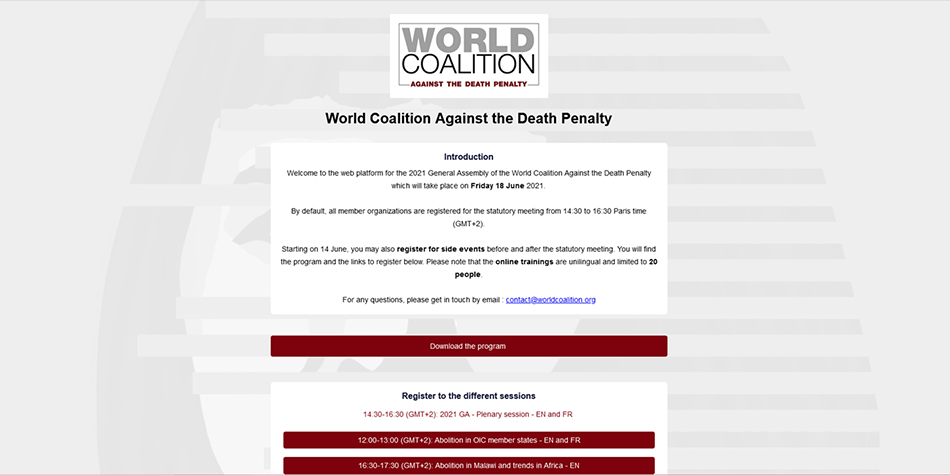
Article(s)
Program of the 18 June 2021 General Assembly
By World Coalition Against the Death Penalty, on 15 June 2021
If you are a member organization, join the fantastic program we will have on Friday 18 June!
2021
Juveniles
Women

Article(s)
246 People Removed from Death Rows in Zambia
on 29 January 2021
President Edgar Lungo announced, on 27 January 2021, that 246 death sentences had been commuted into life, a more than welcome decision that has brought the overall number of commutations to over 500 since 2015.
2021
Clemency
Zambia

Member(s)
New Hampshire Coalition to Abolish the Death Penalty (NHCADP)
on 30 April 2020
New Hampshire Coalition to Abolish the Death Penalty (NHCADP) ‘s mandate and goals are to abolish the Death Penalty in the State of New Hamphire and the United States. To do so, they organise the following actions: direct lobbying of legislators, letter writing campaigns to legislators and media, vigils and other public demonstrations, public information […]
2020
United States
Member(s)
Catholic Commission for Social Justice (CCSJ)
on 30 April 2020
Mandate and goals : To be a fearless united voice challenging injustice, awakening social consciousness and fostering integral development. We strive for this through: Social Justice Education and Advocacy; Promoting people-centred development, and; Working for the transformation of inequitable structures and systems Kind of actions : Promote and create opportunities, structures and programmes to achieve […]
Trinidad and Tobago
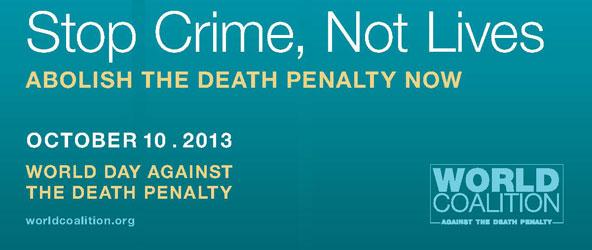
Article(s)
Calendar of events for World Day
By WCADP, on 10 September 2013
On 10 October 2013, the World Day Against the Death Penalty is focusing on the death penalty in the Greater Caribbean. Browse the schedule and the map to prepare and promote the events planned around the world on the big day.
2013
Cruel, Inhuman and Degrading Treatment and Punishment
Document(s)
Another Place Beyond Here: The Death Penalty Moratorium Movement in the United States
By Jeffrey L. Kirchmeier / University of Colorado Law Review, on 1 January 2002
2002
Article
United States
More details See the document
Professor Kirchmeier examines the recent decline in support for the death penalty in the United States and the resulting emergence of a movement to impose a moratorium on executions. After discussing the history of the death penalty abolition movement in the United States, he identifies five major and seven minor events that have contributed to the growth of the Death Penalty Moratorium Movement. Then, he compares the current Moratorium Movement to other similar reform periods: the 1960s Death Penalty Abolitionist Movement; legislative abolition of the death penalty in several states during the mid-1800s and early 1900s; death penalty abolition in other countries; and the Anti-Lynching Movement of the early 1900s. Based on the history of these other movements, Professor Kirchmeier discovers various lessons for today’s Moratorium Movement, including lessons about strategy and the roles of public opinion and leadership. Finally, using these lessons from history and looking at recent events, he considers the future of the Moratorium Movement. Professor Kirchmeier concludes that for the Movement to continue to be successful: (1) there must be no major national distracting forces; (2) the Movement must continue to broaden its arguments and not be overly dependent upon one issue, one person, or one strategy; (3) the Movement must continue seek support from unexpected voices; and (4) the Movement must stay focused on the goals of achieving popular support and creating new leaders. Finally, Professor Kirchmeier predicts that the Moratorium Movement is strong enough to continue to have lasting effects.
- Document type Article
- Countries list United States
- Themes list Moratorium ,

Member(s)
Ligue Ivoirienne des Droits de l’Homme
on 30 April 2020
The Ligue ivoirienne des droits de l’Homme [Ivory Coast Human Rights League, LIDHO] is politically and religiously independent. Its main aim is to work towards creating a state of law in Ivory Coast. To achieve that objective, it works in particular towards strengthening the legal system and ensuring an independent justice system and fair and […]
2020
Côte d'Ivoire
Document(s)
Children of parents sentenced to death or executed: How are they affected? How can they be supported?
By Child Rights Connect , on 8 September 2020
2020
Arguments against the death penalty
More details See the document
From the point of arrest decades after the execution or release of a parent accused of a capital crime, the children’s mental health and wellbeing, living situation, and relationships with others can all be affected, usually in a devastating manner. The inherent trauma of knowing that a loved one is going to be executed can be exacerbated by public indifference or hostility, and by authorities who either fail to recognise or deliberately refuse to consider the situation of these children. This publication addresses the challenges to support the children.
- Document type Arguments against the death penalty
- Themes list Juveniles, International law, Murder Victims' Families,
Article(s)
Video: meet Taiwan’s anti-death penalty activists
on 16 June 2009
The Taiwan Alliance to End the Death Penalty has just released a clip presenting its work and the status of capital punishment in the country.
2009
Taiwan
Document(s)
International Perspectives on the Death Penalty: A Costly Isolation for the U.S.
By Death Penalty Information Center / Richard C. Dieter, on 1 January 1999
1999
NGO report
More details See the document
This report examines the sequence of recent events that has increasingly placed the death penalty in the international spotlight. Some of these events are direct challenges to the practice of capital punishment in the U.S. Others are changes in the balance of death penalty practices and attitudes around the world. The report looks at the ways in which the international community has sought to limit the application of the death penalty, and the U.S.’s response to these initiatives. It also explores the world-wide trend towards complete abolition of the death penalty and the U.S. reaction. Although much of the official U.S. response to international criticism has been denial, the report looks at some local and unofficial actions, which indicate a different direction. Finally, the report notes the present and potential costs the U.S. is facing for adhering to the death penalty.
- Document type NGO report
- Themes list Networks,
Document(s)
The Death Penalty in Ohio: Fairness, Reliability, and Justice at Risk—A Report on Reforms in Ohio’s Use of the Death Penalty Since the 1997 Ohio State Bar Association Recommendations
By S. Adele Shank / Ohio State Law Journal, on 1 January 2002
2002
Article
United States
More details See the document
The report as presented to the Ohio State Bar Association Council of Delegates in 1997,the OSBA’s recommendations and, where there have been changes in the law since that time, updates reflecting those changes. New information is noted at the conclusion of each section of the report immediately following the OSBA recommendation for that section.
- Document type Article
- Countries list United States
- Themes list Networks,
Article(s)
Project Manager – Regional and World Congress Against the Death Penalty
By ECPM, on 17 August 2017
Ensemble contre la peine de mort (ECPM – Together against the Death Penalty) is recruiting a project manager for its international Congresses : World Congress against the Death Penalty (Brussels – February 2019) / Regional Congress against the Death Penalty (Sub-saharan Africa 2018) – temporary contract.
2017
Document(s)
Note verbale dated 10 February 2009 from the Permanent Missions to the United Nations of Afghanistan, the Bahamas, […] and Zimbabwe addressed to the Secretary-General
By United Nations, on 8 September 2020
2020
United Nations report
Afghanistan
Bahamas
Bahrain
Bangladesh
Barbados
Botswana
Brunei Darussalam
Central African Republic
Chad
China
Comoros
Democratic People's Republic of Korea
Dominica
Egypt
Equatorial Guinea
Eritrea
Eswatini
Ethiopia
Fiji
Gambia
Grenada
Guinea
Guyana
Indonesia
Iran (Islamic Republic of)
Iraq
Jamaica
Japan
Jordan
Kuwait
Lao People's Democratic Republic
Libya
Malaysia
Maldives
Mauritania
Mongolia
Moratorium
Myanmar
Niger
Nigeria
Papua New Guinea
Qatar
Saint Kitts and Nevis
Saint Lucia
Saint Vincent and the Grenadines
Saudi Arabia
Singapore
Solomon Islands
Somalia
Sudan
Suriname
Syrian Arab Republic
Thailand
Tonga
Trinidad and Tobago
Uganda
United Arab Emirates
Yemen
Zimbabwe
aresfrruzh-hantMore details See the document
The Permanent Missions to the United Nations in New York listed below present their compliments to the Secretary-General of the United Nations and have the honour to refer to resolution 62/149, entitled “Moratorium on the use of the death penalty”, which was adopted by the Third Committee on 15 November 2007, and subsequently by the General Assembly on 18 December 2007 by a recorded vote. The Permanent Missions wish to place on record that they are in persistent objection to any attempt to impose a moratorium on the use of the death penalty or its abolition in contravention to existing stipulations under international law, for the following reasons:
- Document type United Nations report
- Countries list Afghanistan / Bahamas / Bahrain / Bangladesh / Barbados / Botswana / Brunei Darussalam / Central African Republic / Chad / China / Comoros / Democratic People's Republic of Korea / Dominica / Egypt / Equatorial Guinea / Eritrea / Eswatini / Ethiopia / Fiji / Gambia / Grenada / Guinea / Guyana / Indonesia / Iran (Islamic Republic of) / Iraq / Jamaica / Japan / Jordan / Kuwait / Lao People's Democratic Republic / Libya / Malaysia / Maldives / Mauritania / Mongolia / Myanmar / Niger / Nigeria / Papua New Guinea / Qatar / Saint Kitts and Nevis / Saint Lucia / Saint Vincent and the Grenadines / Saudi Arabia / Singapore / Solomon Islands / Somalia / Sudan / Suriname / Syrian Arab Republic / Thailand / Tonga / Trinidad and Tobago / Uganda / United Arab Emirates / Yemen / Zimbabwe
- Themes list Moratorium
- Available languages مذكرةشفويةمؤرخة١٠شـباط/فبرايـر٢٠٠٩Nota verbal de fecha 10 de febrero de 2009 dirigida al Secretario General por las misiones permanentes ante las Naciones Unidas del Afganistán, la Arabia Saudita, [...] y ZimbabweNote verbale datée du 10 février 2009, adressée au Secrétaire général par les Missions permanentes auprès de l’Organisation des Nations Unies de l’Afghanistan, de l’Arabie saoudite, [...] et du ZimbabweВербальная нота постоянных представительств Афганистана, БагамскихОстровов, […] и Чада при Организации Объединенных Наций от 10 февраля 2009 года на имя Генерального секретаря9年2月10日阿富汗、巴哈马、巴林、[...] 也门和津巴布韦常驻联合国代表团给秘书长的普通照会
Page(s)
Newsletter
on 22 June 2020
With our monthly newsletter, make sure that you do not miss out on the latest information on the abolition of the death penalty. Subscribe to receive the latest articles published on the site, new documents available in the library as well as the agenda of our members. You can also sign up for our quarterly […]
2020
Document(s)
The Death Penalty V. Human Rights: Why Abolish the Death Penalty?
By Amnesty International, on 1 January 2007
2007
NGO report
fresMore details See the document
In this document Amnesty International calls on the UN General Assembly, 62nd session, (2007) to adopt a resolution affirming the right to life and stating that abolition of the death penalty is essential for the protection of human rights and to report on the implementation of the moratorium to the next session of the UNGA. It also calls on retentionist countries to establish a moratorium on executions and to respect international standards that guarantee the protection of the rights of those facing the death penalty.
- Document type NGO report
- Themes list Networks,
- Available languages UN CHÂTIMENT CONTRAIRE AUX DROITS HUMAINS : Pourquoi il faut abolir la peine de mortLOS DERECHOS HUMANOS FRENTE A LA PENA DE MUERTE : ¿Por qué abolir la pena capital? Septiembre de 2007
Document(s)
The death penalty and the “most serious crimes”: A country -by -country overview of the death penalty
By International Commission Against the Death Penalty, on 1 January 2013
2013
NGO report
More details See the document
This document provides brief commentary on the concept of “most serious crimes”, followed by a country by country overview of criminal offences punishable by death in retentionist states
- Document type NGO report
- Themes list Trend Towards Abolition, Statistics,
Article(s)
Cities for life – Cities Against the Death Penalty
on 29 November 2007
On November 30, over 600 cities worldwideincluding over 30 capital cities lit up their public buildings in opposition to the death penalty.
2007
Italy
Document(s)
Preventing the Reintroduction of the Death Penalty in the Philippines
By World Coalition Against the Death Penalty, Mai Sato and Sara Kowal, on 10 August 2021
2021
Campaigning
Philippines
Public Opinion
frMore details Download [ pdf - 218 Ko ]
Findings of a study on the threats facing local civil society efforts to combat reinstroduction of the death penalty and the risks involved with reintroducing the death penalty in the Philippines.
- Document type Campaigning
- Countries list Philippines
- Themes list Public Opinion
- Available languages Prévenir la réintroduction de la peine de mort aux Philippines
Document(s)
The American Death Penalty and the (In)Visibility of Race
By Death Penalty Information Center / Carol S. Steiker / Jordan M. Steiker, on 1 January 2015
2015
Article
United States
More details See the document
In a new article for the University of Chicago Law Review, Professors Carol S. Steiker (left) of the University of Texas School of Law and Jordan M. Steiker (right) of Harvard Law School examine the racial history of the American death penalty and what they describe as the U.S. Supreme Court’s “deafening silence” on the subject of race and capital punishment. They assert that the story of the death penalty “cannot be told without detailed attention to race.” The Steikers’ article recounts the role of race in the death penalty since the early days of the United States, including the vastly disproportionate use of capital punishment against free and enslaved blacks in the antebellum South and describes the racial and civil rights context in which the constitutional challenges to the death penalty in the 1960s and 1970s were pursued. The authors contrast the “salience of race” in American capital punishment law and practice through the civil rights era with the “relative invisibility [of race] in the judicial opinions issued in the foundational cases of the modern era.”
- Document type Article
- Countries list United States
- Themes list Discrimination,

Member(s)
Lutte pour la Justice
on 30 April 2020
Le comité Lutte pour la Justice (LPJ) was created in 1996 by Odell Barnes, a death row prisoner in Texas who wanted to have his innocence recognised and the right to a new trial. His three French correspondents took on his cause the very same year. This informal committee aimed to provide moral support and, […]
2020
France
Document(s)
United Nations General Assembly – Resolutions of the 77th Session
By United Nations, on 15 December 2022
2022
United Nations report
aresfrruzh-hantMore details See the document
This report provided by the United Nations General Assembly presents the resolutions of the 77th session. It includes reports on the moratorium on the use of the death penalty (A/77/463/Add.2 DR XII) which was adopted on the 15th of December 2022 with a vote (125-37-22) (A/77/PV.54) under item 68(b). Guided by the purposes and principles contained in the Charter of the United Nations, it reaffirms the Universal Declaration of Human Rights, the International Covenant on Civil and Political Rights and the Convention on the Rights of the Child and recalls the Second Optional Protocol to the International Covenant on Civil and Political Rights, aiming at the abolition of the death penalty.
- Document type United Nations report
- Available languages الجمعية العامة للأمم المتحدة - قرارات الدورة السابعة والسبعينAsamblea General de las Naciones Unidas - Resoluciones del 77º Período de SesionesAssemblée Générale des Nations Unies - Résolutions de la 77e SessionГенеральная Ассамблея ООН - Резолюции 77-й сессии联合国大会 - 第77届会议的决议
Document(s)
The Death Penalty Is Dead Wrong: Jus Cogens Norms and the Evolving Standard of Decency
By Geoffrey Sawyer / Penn State International Law Review, on 1 January 2004
2004
Article
Nigeria
More details See the document
The conviction of Amina Lawal in Nigeria for committing adultery and sentence of death by stoning created an international outcry of support to overturn her sentence. The support she received is a reflection of the outrage many around the world feel toward this particular method of execution, and in a larger context the growing social norm that the death penalty should be abolished. As more of the world looks upon the death penalty as unfair, or cruel and unusual, or as torture, arguably, a jus cogens norm prohibiting the death penalty has developed in international law, and will ultimately be the vehicle by which the death penalty will be abolished worldwide. Part I of this comment will detail the plight of Amina Lawal, and how her situation is indicative of the globalization of human rights norms. In Part II, this comment will examine the meaning of a jus cogens norm and how it can be established in the context of capital punishment. Using human rights treaties, the law and practice of other nations, and international tribunal decisions, Part III will assert, citing other contexts, such as the “right to life,” and the already entrenched jus cogens norm prohibiting torture, that a jus cogens norm abolishing the death penalty has arguably already been established. Finally, Part IV will assess what the effect of the establishment of a jus cogens norm prohibiting capital punishment.
- Document type Article
- Countries list Nigeria
- Themes list Stoning,

Member(s)
Collectif des Organisations des Jeunes Solidaires (COJESKI)
on 30 April 2020
The Collectif des organisations des jeunes solidaires du Congo-Kinshasa RDC [Collective of Youth Solidarity Organisations in Congo-Kinshasa DRC, COJESKI-RDC] is a platform consisting of 340 youth organisations which has been operating in Congo-Zaire since 1995. Its main aim is to promote and defend positive human values, sustainable development and good governance of the Democratic Republic […]
2020
Democratic Republic of the Congo
Document(s)
Iran/death penalty: A state terror policy – Special edition for the 4th World Congress against the death penalty
By Bijan Baharan / International Federation for Human Rights (FIDH), on 8 September 2020
2020
NGO report
Iran (Islamic Republic of)
faMore details See the document
This report covers the various aspects of the topic including: domestic laws, international legal framework, execution of juvenile offenders, religious and ethnic minorities, and methods of execution. According to the report, there are over 20 main categories of offences, some of them with several sub-categories, in the IRI, which are punishable by the death penalty. The majority of those “offences” are certainly not among “the most serious crimes.” Some others should not be considered as “offences” at all. In conclusion, FIDH issued a wide set of recommendations to the IRI and the international community. Among others, it recommended the adoption of an immediate moratorium on executions in light of the serious shortcomings of the guarantees of due process and fair trial.
- Document type NGO report
- Countries list Iran (Islamic Republic of)
- Themes list Minorities, Country/Regional profiles,
- Available languages ایران: مجازات اعدام سیاست دولتی ایجاد وحشت ـ ویژه نامه برای کنگره ی جهانی ضد مجازات اعدام
Document(s)
No death penalty: Essay on the human dignity of the guilty
By Alfredo De Francesco , on 11 January 2022
2022
Book
More details See the document
Is the death penalty “natural” or sometimes legally due?
If not, is the death penalty always a political instrument?
If so, how and why can it be said that the death penalty is unjust, also considering religious values?
What about in case of war time or of very dangerous criminals?
In which way can there be an irrefutable argument for banning the death penalty worldwide and forever?
These and other issues concerning the death penalty are addressed by the Author of this book.
A book, where the most common theories for and against the death penalty are considered in the light of law history and philosophical views, and where Cesare Beccaria’s approach is revised, taking into account the development of the contemporary criminal law and of the legal positivism.
This is an essay, where the protection of humanity is not considered simply as a hope or as a naive dream, but rather as a juridical concept, absolutely necessary to understand one of most tragic questions of all time: “is it just to kill those who killed?”
- Document type Book
Document(s)
Capital punishment and implementation of the safeguards guaranteeing protection of the rights of those facing the death penalty: Report of the Secretary-General
By United Nations, on 1 January 2005
2005
International law - United Nations
arruesesarruenfrfrzh-hantzh-hantMore details See the document
The present report, prepared pursuant to Economic and Social Council resolutions 1754 (LIV) of 16 May 1973 and 1995/57 of 28 July 1995, is the seventh quinquennial report of the Secretary-General on capital punishment.1 It covers the period 1999-2003 and reviews developments in the use of capital punishment worldwide, both in law and in practice. The report shows an encouraging trend towards abolition and restriction of the use of capital punishment in most countries. It also shows that much remains to be done in the implementation of the safeguards guaranteeing protection of the rights of persons facing the death penalty in those countries that retain it.
- Document type International law - United Nations
- Themes list Trend Towards Abolition,
- Available languages عقوبة الإعدام وتنفيذ الضمانات التي تكفل حماية حقوق الذين يواجهون عقوبة الإعدام : م ذكّرة من الأمين العامСмертная казнь и применение мер, гарантирующих защиту прав тех, кому грозит смертная казнь : Доклад Генерального секретаряLa pena capital y la aplicación de las salvaguardias para garantizar la protección de los derechos de los condenados a la pena de muerte : Informe del Secretario GeneralLa pena capital y la aplicación de las salvaguardias para garantizar la protección de los derechos de los condenados a la pena de muerte : Informe del Secretario Generalعقوبة الإعدام وتنفيذ الضمانات التي تكفل حقوق ال ذين يواجهون عقوبة الإعدام :تقرير الأمين العامСмертная казнь и осуществление мер, гарантирующих защиту прав тех, кто приговорен к смертной казни: Доклад Генерального секретаряCapital punishment and implementation of the safeguards guaranteeing protection of the rights of those facing the death penalty : report of the Secretary-GeneralPeine capitale et application des garanties pour la protection des droits des personnes passibles de la peine de mort: Rapport du Secrétaire généralPeine capitale et application des garanties pour la protection des droits des personnes passibles de la peine de mort: Rapport du Secrétaire général死刑和保护死刑犯权利的保障措施的执行情况: 秘书长的报告死刑和保护死刑犯权利的保障措施的执行情况: 秘书长的报告
Document(s)
Second Optional Protocol to the International Covenant on Civil and Political Rights, aiming at the abolition of the death penalty
By United Nations, on 1 January 1989
1989
United Nations report
arrufrzh-hantesMore details See the document
The States Parties to the present Protocol,Believing that abolition of the death penalty contributes to enhancement of human dignity and progressive development of human rights,Recalling article 3 of the Universal Declaration of Human Rights, adopted on 10 December 1948, and article 6 of the International Covenant on Civil and Political Rights, adopted on 16 December 1966,Noting that article 6 of the International Covenant on Civil and Political Rights refers to abolition of the death penalty in terms that strongly suggest that abolition is desirable,Convinced that all measures of abolition of the death penalty should be considered as progress in the enjoyment of the right to life,Desirous to undertake hereby an international commitment to abolish the death penalty,Have agreed as follows:Article 11. No one within the jurisdiction of a State Party to the present Protocol shall be executed.2. Each State Party shall take all necessary measures to abolish the death penalty within its jurisdiction.
- Document type United Nations report
- Themes list International law,
- Available languages البروتوكول الاختياري الثاني الملحق بالعهد الدولي الخاص بالحقوق المدنية والسياسية بهدف العمل علي إلغاء عقوبة الإعدامВторой Факультативный протокол к Международному пакту о гражданских и политических правах, направленный на отмену смертной казниDeuxième protocole facultatif se rapportant au Pacte international relatif aux droits civils et politiques, visant à l'abolition de la peine de mort第二任择议定书的公民权利和政治权利国际公约,其目的在废除死刑Segundo Protocolo Facultativo del Pacto Internacional de Derechos Civiles y Políticos, destinado a abolir la pena de muerte
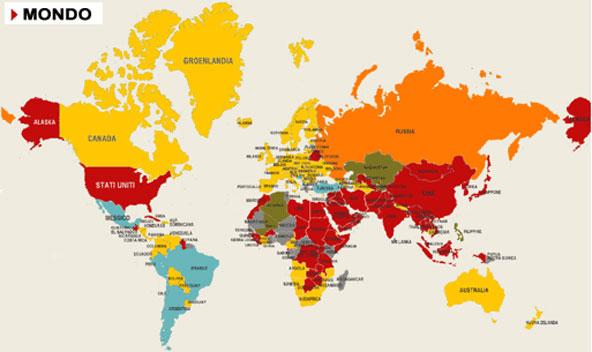
Article(s)
Hands Off Cain: number of executions and retentionist countries down in past year
on 29 July 2013
World Coalition member Hands Off Cain (HOC) presented its 2013 Report, ‘The Death Penalty Worldwide’ at its headquarters in Rome on 26 July. It recorded a sharp drop in executions.
2013

Article(s)
Calendar of events for World Day 2014
By World Coalition Against the Death Penalty, on 19 August 2014
On 10 October 2014, the 12th World Day Against the Death Penalty is drawing attention to people with mental health problems who are at risk of a death sentence or execution. Browse the schedule and the map to prepare and promote the events planned around the world on the big day.
2014
Intellectual Disability
Mental Illness

Member(s)
Lawyers For Human Rights International (LFHRI)
on 30 April 2020
In the early eighties, a group of lawyers committed to human rights work formed a loose group in order to defend the victims of state repression. In 1992, when the Punjab police and the security agencies who were operating in Punjab started a campaign to harass and kill human rights defenders and the group started […]
2020
India

Member(s)
Réseau d’alerte et d’intervention pour les droits de l’Homme (RAIDH)
on 30 April 2020
The Alert and Intervention Network for Human Rights (Réseau d’alerte et d’intervention pour les droits de l’Homme (RAIDH) aims to organise, finance and support any work, initiatives, measures, ideas or discussions which aim to defend and promote human rights (particularly civil and political rights, economic, social and cultural rights, international humanitarian rights, rights for refugees, […]
France
Document(s)
China’s Death Penalty: The Supreme People’s Court, the Suspended Death Sentence and the Politics of Penal Reform
By Susan Trevaskes / British Journal of Criminology, on 1 January 2013
2013
Article
China
More details See the document
This paper examines the issue of judicial discretion and the role of the Supreme People’s Court (SPC) in death penalty reform since 2007. The SPC has been encouraging judges to give ‘suspended’ death sentences rather than ‘immediate execution’ for some homicide cases. Lower court judges are encouraged to use their discretion to recognize mitigating circumstances that would allow them to sentence offenders to a suspended death sentence. The SPC has used ‘guidance’ instruments which include ‘directives’ and other SPC interpretations and a new ‘case guidance’ system which provides case exemplars to follow. The study explored these guidance instruments as a way of deepening the understanding of how law, politics and judicial practices are interwoven to achieve reform goals.
- Document type Article
- Countries list China
- Themes list Death Penalty, Country/Regional profiles,
Document(s)
Key legal Instruments and texts adopted on Abolition of the death penalty by the Council of Europe
By Council of Europe, on 24 January 2023
2023
Regional body report
Trend Towards Abolition
frMore details See the document
All the Council of Europe documents related to abolition of the death penalty gathered in one page : decisions of the Committee of Ministers, resolutions of the Parliamentary Assembly, Treaties…
- Document type Regional body report
- Themes list Trend Towards Abolition
- Available languages Instruments juridiques clés et textes adoptés sur l'abolition de la peine de mort par le Conseil de l'Europe
Document(s)
The Juvenile Death Penalty Today: Death Sentences and Executions for Juvenile Crimes, January 1, 1973 – February 28, 2005
By Victor Streib / Ohio Northern University, on 8 September 2020
2020
Article
United States
More details See the document
This is Issue #77, the final issue of these periodic reports, having first been launched on June 15, 1984. On that date, the death penalty for juvenile offenders (defined as those under age 18 at the time of their crimes) was an obscure issue in law as well as in political and social arenas. During the last twenty-one years, these reports have been with us (1) through the intense litigation of the late 1980s, (2) through our society’s near hysteria about violent juvenile crime in the 1990s, (3) into the era of the international pressure on the United States to abandon this practice, and (4) now at the end of this practice. The validity and influence of these reports is indicated by thecitations to them in the opinions of leading courts, including the United States Supreme Court: Roper v. Simmons, 125 S.Ct. 1183, 1192, 1193, 1210, 1211, 1221 (2005); In re Stanford, 537 U.S. 968, 971 (2002); and Stanford v. Kentucky, 492 U.S. 361, 373 (1989). In the litigation leading up to the final juvenile death penalty case before the United States Supreme Court (Roper v. Simmons, 125 S.Ct. 1183 (2005)), the Missouri Supreme Court majority opinion included 12 citations to these reports: See Simmons v. Roper, 112 S.W.3d 397, 408, 409, 411 (Mo. 2003). This final issue of this periodic report is intended to document the status of the death penalty for juvenile offenders as ofthe day before the United States Supreme Court held this practice to be unconstitutional. These reports sketch the characteristics of the juvenile offenders and their crimes who have been sentenced to death, who have been executed, and who are currently under death sentences. —- See bottom left hand corner of web page.
- Document type Article
- Countries list United States
- Themes list Juveniles,

Member(s)
Reprieve
on 30 April 2020
Reprieve is a small, feisty registered charitable organisation of human rights defenders. Our strategy is to use strategic interventions to end the use of the death penalty globally, and to end extreme human rights abuses carried out in the name of “counterterrorism” or “national security” We work for among the most disenfranchised people in society, […]
2020
United Kingdom

Member(s)
Organisation Marocaine des Droits Humains
on 30 April 2020
The Moroccan Organisation for Human Rights (OMDH) aims to diffuse and deepen the awareness of individual and collective human rights in socio-economic, cultural, civil and political matters. Working with other Moroccan, Arabic, African and international organisations, it organises conferences, debates, research, investigations and exhibitions as well as a video competition on human rights. The OMDH […]
Morocco
Document(s)
The Death Penalty in the OSCE Area: Background Paper 2017
By Organization for Security and Co-operation in Europe (OSCE), on 1 January 2017
2017
International law - Regional body
More details See the document
OSCE participating States have made a number of commitments regarding the death penalty, including considering the potential abolition of capital punishment, to exchange information toward that end and to make information on the use of the death penalty available to the public.1 Where the death penalty is still in use, participating States have agreed that it could be imposed only for the most serious crimes and only in line with international commitments.2 In light of these commitments and its mandate, the OSCE Office for Democratic Institutions and Human Rights (ODIHR) monitors trends and new developments regarding human rights standards and practices among OSCE participating States related to the death penalty. The findings are presented each year in the Background Paper on the Status of the Death Penalty in the OSCE Area. The background paper is based on the information provided by participating States, in the form of responses to ODIHR questionnaires. The information from their responses has been included in the present report, to the extent possible, and is supplemented with information from international and regional human rights bodies, non-governmental organizations and media reports.
- Document type International law - Regional body
- Themes list International law, Death Penalty, Country/Regional profiles,
Document(s)
Life After Sentence of Death: What Becomes of Individuals Under Sentence of Death After Capital Punishment Legislation is Repealed or Invalidated
By James R. Acker, Brian W. Stull, on 25 July 2021
2021
Academic report
United States
More details See the document
More than 2500 individuals are now under sentence of death in the United States. At the same time, multiple indicators—public opinion polls, legislative repeal and judicial invalidation of deathpenalty laws, the reduction in new death sentences, and infrequency of executions—suggest that support for capital punishment has significantly eroded. As jurisdictions abandon or consider eliminating the death-penalty, the fate of prisoners on death row—whether their death sentences, valid when imposed, should be carried out or whether these individuals should instead be spared execution—looms as contentious political and legal issues, fraught with complex philosophical, penological, and constitutional questions. This article presents a detailed account of what has happened historically to persons awaiting execution, principally within the United States but also internationally, at the time capital-punishment legislation is repealed or invalidated (either completely, or with respect to a narrow category of crimes or persons). Our analysis has uncovered no instances of executions being carried out under those circumstances. This finding has important policy implications and is directly relevant to the Supreme Court’s Eighth Amendment jurisprudence, which relies on execution practices as one measure to help inform the Court about whether the death penalty is a cruel and unusual punishment.
- Document type Academic report
- Countries list United States

Article(s)
Take Action for World Day 2017!
By World Coalition Against the Death Penalty, on 12 September 2017
Check what you can do for 10 October. Browse the calendar of events and the map to prepare and promote the events planned around the world on the big day.
2017
Public Opinion
Document(s)
Death penalty in Iran: A State terror policy – Special Update for 11th World Day against the Death Penalty
By International Federation for Human Rights (FIDH), on 8 September 2020
2020
NGO report
Iran (Islamic Republic of)
faMore details See the document
The change of administration in the Islamic Republic of Iran (IRI) and taking of office by a new president on 3 August 2013 has not brought any change as far as the death penalty is concerned. Between the 14 June presidential election and 1st October, more than 200 people have been reportedly executed, including possibly three people who may have been younger than 18 at the time of the commission of the alleged crimes.Against this backdrop, FIDH and its member organisation, LDDHI, have decided topublish the present report to analyse the new penal laws in force in Iran that are invoked consistently to violate the right to life in general and to execute child offenders. Coinciding with 10 October 2013, World Day against the Death Penalty, this report aimsto serve as an update on the current state of application of the death penalty in the IRI.
- Document type NGO report
- Countries list Iran (Islamic Republic of)
- Themes list Juveniles, Drug Offences, Hanging, Country/Regional profiles,
- Available languages مجازﺯاﺍتﺕ اﺍعداﺍمﻡ دﺩرﺭ اﺍﯾﻳراﺍنﻥ - سﯿﻴاست دﺩوﻭلتﯽﻲ اﺍﯾﻳجادﺩ وﻭحشت - وﻭﯾﻳژهﻩ ﯾﻳازﺯدﺩهمﯿﻴن رﺭوﻭزﺯ جهانﯽﻲ ضد مجازﺯاﺍتﺕ اﺍعداﺍمﻡ
Document(s)
The Death Penalty: Should the Judge or the Jury Decide Who Dies?
By John H. Blume / Theodore Eisenberg / Sheri Lynn Johnson / Cornell Law Review / Martin T. Wells / Valerie P. Hans / Amelia Courtney Hritz / Caisa E. Royer, on 1 January 2014
2014
Academic report
More details See the document
This article addresses the effect of judge versus jury decision making through analysis of a database of all capital sentencing phase hearing trials in the state of Delaware from 1977-2007. Over the three decades of the study, Delaware shifted responsibility for death penalty sentencing from the jury to the judge. Currently, Delaware is one of the handful of states that gives the judge the final decision making authority in capital trials. Controlling for a number of legally-relevant and other predictor variables, we find that the shift to judge sentencing significantly increased the number of death sentences. Statutory aggravating factors, stranger homicides, and the victim’s gender also increased the likelihood of a death sentence, as did the county of the homicide. We reflect on the implications of these results for debates about the constitutionality of judge sentencing in capital cases.
- Document type Academic report
- Themes list Statistics, Country/Regional profiles,
Document(s)
Report to the Committee on Defender Services Judicial Conference of the United States – Update on the Cost and Quality of Defense Representation in Federal Death Penalty Cases
By Lisa Greenman / Jon B. Gould / Office of Defender Services of the Administrative Office of the U.S. Courts, on 8 September 2020
2020
NGO report
United States
More details See the document
Part I of this report offers an introduction and overview of the research. Part II examines the way prosecution policies and practices have developed from 1989, the beginning of the modern federal death penalty era, through the end of 2009. Parts III, IV, and V of this report discuss the costs associated with defending a federal capital case. Section VI describes qualitative data obtained through interviews of federal judges who had presided over a federal death penalty case and experienced federal capital defense counsel on topics such as the quality of defense representation, case budgeting and case management practices, the role of experts, and the death penalty authorization process. Finally, in Sections VII and VIII, the Recommendations of the 1998 Spencer Report are reaffirmed, and the Commentary associated with those recommendations is updated to reflect the past 12 years of experience with federal capital litigation.
- Document type NGO report
- Countries list United States
- Themes list Financial cost,
Article(s)
Asia-Pacific youths oppose the death penalty in pictures
on 10 October 2008
Amnesty International’s Asia Pacific Youth Network has been collecting photos of young people protesting against capital punishment in the lead up to World Day Against the Death Penalty.
2008
Document(s)
The European Union and the Abolition of the Death Penalty
By Christan Behrmann and Jon Yorke / Pace University, School of Law, on 1 January 2013
2013
Academic report
More details See the document
This article investigates how the EU has evolved its abolitionist position. It analyzes the development of the region’s internal policy beginning in the European Parliament, to the rejection of the punishment being mandated as a Treaty provision, which evolves into anintegral component of the external human rights project. The EU has now formulated technical bilateral and multilateral initiatives to promote abolition worldwide. This is most clearly evidenced in the EU playing an important role in the 2007 United Nations General Assembly Resolution on the moratorium on the use of the death penalty, and the strengthening of the resolution in 2008, 2010, and 2012. This article demonstrates that the EU’s contribution to the abolition of the deathpenalty is a recognizable success story of human rights, and it is one aspect of the regions’ policies that was rewarded in 2012 with the Nobel Peace Prize.
- Document type Academic report
- Themes list Trend Towards Abolition,
Document(s)
Justice Project Pakistan, Pakistanis Imprisoned Abroad Database
By Justice Project Pakistan (JPP), on 7 February 2024
2024
NGO report
Pakistan
More details See the document
Pakistan is counted among the countries that rely heavily on foreign remittances for economic stability and foreign reserves. However, despite its dependence on foreign remittances from migrant workers, Pakistan has done little to protect its vulnerable citizens from landing in foreign jails. As a result, Pakistan has seen a significant increase in the number of prisoners and executions abroad. Inadequate oversight and the lack of proper enforcement of existing protections is a literal death sentence for scores of Pakistanis who simply seek a better life and improved prospects for loved ones by working abroad.
- Document type NGO report
- Countries list Pakistan
Article(s)
Support grows for Davis as his execution is stayed
on 26 October 2008
Troy Davis’s execution was stayed on October 23, four days before he was scheduled to die, as activists took action on his behalf all over the world.
2008
United States

Member(s)
Hope and Justice
on 30 April 2020
Hope and Justice is a small association founded after a plea for help from two prisoners sentenced to death, Justin Fuller and Carl Brooks. The initial aim was to save their lives by raising awareness among the greatest number of people possible of their cases and a fund for their defence. Justin Fuller was executed […]
2020
Belgium
Document(s)
The Death of the American Death Penalty
By L. Koch / Northeastern University Press / J. Galliher, on 1 January 2012
2012
Book
United States
More details See the document
A new book by Larry Koch, Colin Wark and John Galliher discusses the status of the death penalty in the U.S. in light of recent legislative activity and court decisions. In The Death of the American Death Penalty, the authors examine the impact of factors such as economic conditions, public sentiment, the role of elites, the media, and population diversity on the death penalty debate.
- Document type Book
- Countries list United States
- Themes list Public opinion, Public debate,

Member(s)
Quaker United Nations Office, Geneva
on 30 April 2020
The Quaker United Nations Office (QUNO) serves as a Quaker presence at the United Nations (UN) in Geneva and New York. QUNO represents Quaker concerns at the international level, under the auspices of the Friends World Committee for Consultation (Quakers), the international Quaker body which has General Consultative Status with the UN. In addition to […]
2020
Switzerland
Document(s)
What Strategies Towards the Abolition of the Death Penalty in West Africa? : Report of the Symposium in Dakar
By FIACAT, on 1 January 2012
2012
NGO report
More details See the document
The regional seminar on the abolition of the death penalty in West Africa took place inDakar (Senegal) from 12-14 November 2012. This workshop brought together nineteenACAT members affiliated to FIACAT. It was therefore possible for each of the nine West Afri-can ACATs1to be represented by two participants (with the exception of Senegal, whichwas represented by three members).Participants at the workshop attended lectures and had the opportunity to developnational action plans for achieving abolition in their countries. According to feedbackreceived at the end of the seminar, attendees found the practical nature of the lectures,and the opportunity to network with other ACATs and learn from the experiences of otherparticipants, particularly beneficial.This document is a collection of all of the lectures from the Dakar seminar, as well asinternational and African texts relating to the death penalty. It is intended as a practicaltool to assist us as we progress towards abolition in Sub-Saharan Africa.
- Document type NGO report
- Themes list Trend Towards Abolition, Member organizations, Country/Regional profiles,
Article(s)
“Irreversible trend towards abolition” – OSCE
on 12 October 2010
The Organisation of Security and Cooperation in Europe (OSCE)’s Report entitled “The Death Penalty in the OSCE Area: Background Paper 2010” was published and discussed during the “Exchange of views on abolition of capital punishment”.
2010
Belarus
Kazakhstan
Latvia
Russian Federation
Tajikistan
United States

Article(s)
Saudi Arabia Reviews Death Sentences Issues Against Children
By Louis Linel, on 1 September 2020
According to the Saudi Human Rights Commission, the death sentence issued against Ali al-Nimr, Dawoud al-Marhoun and Abdullah al-Zaher will be reviewed in accordance with reforms decreed in the Kingdom in April on juvenile criminal justice.
2020
Juveniles
Saudi Arabia

Member(s)
Coalition of Somali Human Rights Defenders CSHRD
on 24 July 2024
The Coalition of Somali Human Rights Defenders (CSHRD) is an organization dedicated to promoting and protecting human rights in Somalia. CSHRD was established in 2014. CSHRD runs holistic and comprehensive torture victims rehabilitation centre in Somalia. CSHRD work is guided by the Universal Declaration of Human Rights UDHR and the SDGs of 1, 5, 10, […]
2024
Somalia

Member(s)
Lualua Center for Human Rights
on 30 April 2020
The objectives of Lualua Center for Human Rights are: 1- To contribute in the promotion of economic, social, cultural, environmental and civil growth according to the international declaration of human rights and subsequent relevant international conventions. 2- To work on achieving integrity and transparency and fighting corruption. To enshrine the concept of citizenship by promoting […]
2020
Lebanon
Document(s)
The Rise, Fall, and Afterlife of the Death Penalty in the United States
By Carol S. Steiker / Annual Review of Law and Social Science, on 1 January 2020
2020
Article
United States
More details See the document
This review addresses four key issues in the modern (post-1976) era of capital punishment in the United States. First, why has the United States retained the death penalty when all its peer countries (all other developed Western democracies) have abolished it? Second, how should we understand the role of race in shaping the distinctive path of capital punishment in the United States, given our country’s history of race-based slavery and slavery’s intractable legacy of discrimination? Third, what is the significance of the sudden and profound withering of the practice of capital punishment in the past two decades? And, finally, what would abolition of the death penalty in the United States (should it ever occur) mean for the larger criminal justice system?
- Document type Article
- Countries list United States
- Themes list Country/Regional profiles,
Document(s)
Incestuous Rape and the Death Penalty in the Philippines: Psychological and Legal Implications
By Seema Kandelia / Philippine Law Journal, on 1 January 2006
2006
Article
Philippines
More details See the document
The majority of those on death row in the Philippines have been convicted of rape crimes, including rape of a minor, rape of a family member and other aggravated forms of rape. Looking at incestuous rape in particular, this paper will examine some of the psychological and legal difficulties of imposing the death penalty for such a crime. It will focus on the effects the administration of the death penalty has on the victim and the victim’s family, as well as looking at some of the legal, evidential and procedural problems that arise in this jurisdiction’s imposition of the death penalty for rape.Despite the continued existence of the death penalty for incestuous rape, the number of reported cases has not diminished. Recognising this, local women’s groups in the Philippines have called for the root causes of incest and other forms of violence against women to be addressed rather than imposing the death penalty for rape. This response will also be considered within the broader context of Filipino gender relations.
- Document type Article
- Countries list Philippines
- Themes list Networks,
Document(s)
Capital punishment and implementation of the safeguards guaranteeing protection of the rights of those facing the death penalty : report of the Secretary-General
By United Nations, on 1 January 2001
2001
United Nations report
arruesesenarrufrfrzh-hantzh-hantMore details See the document
The report shows an encouraging trend towards abolition and restriction of the use of capital punishment in most countries. It also shows that much remains to be done in the implementation of the safeguards guaranteeing protection of the rights of persons facing the death penalty in those countries that retain it.
- Document type United Nations report
- Themes list Trend Towards Abolition,
- Available languages عقوبة الإعدام وتنفيذ الضمانات التي تكفل حماية حقوق الذين يواجهون عقوبة الإعدام : م ذكّرة من الأمين العامСмертная казнь и применение мер, гарантирующих защиту прав тех, кому грозит смертная казнь : Доклад Генерального секретаряLa pena capital y la aplicación de las salvaguardias para garantizar la protección de los derechos de los condenados a la pena de muerte : Informe del Secretario GeneralLa pena capital y la aplicación de las salvaguardias para garantizar la protección de los derechos de los condenados a la pena de muerte : Informe del Secretario GeneralCapital punishment and implementation of the safeguards guaranteeing protection of the rights of those facing the death penalty: Report of the Secretary-Generalعقوبة الإعدام وتنفيذ الضمانات التي تكفل حقوق ال ذين يواجهون عقوبة الإعدام :تقرير الأمين العامСмертная казнь и осуществление мер, гарантирующих защиту прав тех, кто приговорен к смертной казни: Доклад Генерального секретаряPeine capitale et application des garanties pour la protection des droits des personnes passibles de la peine de mort: Rapport du Secrétaire généralPeine capitale et application des garanties pour la protection des droits des personnes passibles de la peine de mort: Rapport du Secrétaire général死刑和保护死刑犯权利的保障措施的执行情况: 秘书长的报告死刑和保护死刑犯权利的保障措施的执行情况: 秘书长的报告
Document(s)
A Penalty Without Legitimacy: The Mandatory Death Penalty in Trinidad and Tobago
By Douglas Mendes / Florence Seemungal / Jeffrey Fagan / Roger Hood / The Death Penalty Project, on 1 January 2009
2009
NGO report
More details See the document
As a result of legal challenges, and in line with the trend worldwide, the mandatory death penalty has now been abolished in nine Caribbean countries and a discretion to impose a lesser sentence has been given to the judges of the Eastern Caribbean, Belize, Jamaica and the Bahamas. However, in relation to Trinidad & Tobago, in the case of Charles Matthew (Matthew v The State [2005] 1 AC 433), a majority of the Judicial Committee of the Privy Council decided – notwithstanding that the mandatory death penalty was cruel and unusual punishment in violation of entrenched fundamental freedoms and human rights established in the Constitution of Trinidad & Tobago – that it remained protected from constitutional challenge by the operation of the “savings clause” in the Constitution. As a result, Trinidad & Tobago remains one of only three Commonwealth Caribbean countries (Barbados and Guyana being the other two) that still retains the mandatory death penalty.
- Document type NGO report
- Themes list Mandatory Death Penalty,

Member(s)
Avocats Sans Frontières France
on 30 April 2020
The mandate and objectives of Avocats Sans Frontières France are: 1. Defending lawyers and defenders of human rights subject to threats or attacks of any kind because of their exercise professional; 2. Contribute to the effective implementation of human rights, universally recognized for ensuring the acces to any private person to a free and independent […]
2020
France

Member(s)
Human Rights Activists in Iran (HRAI)
on 30 April 2020
Human Rights Activists in Iran (also known as HRAI and HRA) is a non-political and non-governmental organization comprised of advocates who defend human rights in Iran. HRAI was founded in 2006 and aims to promote, safeguard and sustain human rights in Iran. The organization keeps the Iranian community and the world informed by monitoring human […]
Iran (Islamic Republic of)
Document(s)
The Challenge to the Mandatory Death Penalty in the Commonwealth Caribbean
By JOANNA HARRINGTON / American Journal of International Law, on 1 January 2004
2004
Article
More details See the document
The death penalty is a subject that, in the words of Justice Adrian Saunders of the Eastern Caribbean Court of Appeal, “invariably elicits passionate comment.” Such comment is particularly so within the states that make up the Commonwealth Caribbean, where rising rates of violent crime have led to strong public clamor for a swift and final response. The involvement of foreign courts and quasi-judicial international tribunals in limiting the actual use of the death penalty in the Caribbean has made the issue even more politically charged, leading to a strongly held perception that the judgments of these foreign bodies are unacceptable challenges to the very exercise of Caribbean national sovereignty.
- Document type Article
- Themes list Mandatory Death Penalty,
Document(s)
Innocence and the Crisis in the American Death Penalty
By Death Penalty Information Center / Richard C. Dieter, on 1 January 2004
NGO report
More details See the document
This report catalogs the emergence of innocence as the most important issue in the long-simmering death penalty debate. The sheer number of cases and the pervasive awareness of this trend in the public’s consciousness have changed the way capital punishment is perceived around the country. The steady evolution of this issue since the death penalty was reinstated in 1976 has been accelerated in recent years by the development of DNA technology, the new gold standard of forensic investigation. This science, along with a vigorous re-investigation of many cases, has led to the discovery of a growing number of tragic mistakes and freed inmates. The evidence in this report presents a compelling case for many Americans that the risks associated with capital punishment exceed acceptable bounds. One hundred and sixteen people have been freed from death row after being cleared of their charges, including 16 people in the past 20 months. These inmates cumulatively spent over 1,000 years awaiting their freedom. The pace of exonerations has sharply increased, raising doubts about the reliability of the whole system.
- Document type NGO report
- Themes list Innocence,
Document(s)
Death without Justice: A Guide for Examining the Administration of the Death Penalty in the United States
By American Bar Association, on 1 January 2001
2001
Working with...
More details See the document
This guide was created because of the growing flaws in the adminstration of the death penatly, it provides a guide to the death penalty administration process and vulnerable populations in death row administration.
- Document type Working with...
- Themes list Networks,
Article(s)
Take Action for World Day 2020!
By World Coalition Against the Death Penalty, on 10 September 2020
Take action now! The 18th World Day Against the Death Penalty is an excellent opportunity to publicly oppose the use of this inhumane punishment and to support those who are fighting for its abolition all over the world. Organising an event for October 10? Tell us all about it and we will promote it on […]
2020
Fair Trial
Legal Representation
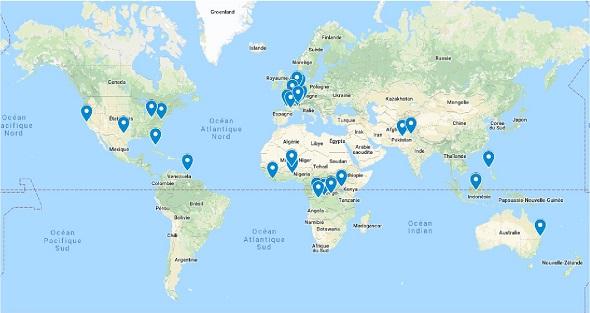
Article(s)
Take Action for World Day 2019!
By World Coalition Against the Death Penalty, on 1 October 2019
Check what you can do for the 10th October. Browse the calendar of events and the interactive map to prepare and promote the events planned around the world on the big day.
2019
Juveniles
Document(s)
Does the Rest of the World Matter? Sovereignty, International Human Rights Law and the American Death Penalty
By Oko Elechi / Eric Lamber / Alan W. Clarke / Queen's Law Journal / Laurie Anne Whitt, on 1 January 2004
2004
Article
United States
More details See the document
American officials have indicated that extra efforts will be used to ensure that captured terrorist suspects face the death penalty. Secretary of Defense Donald Rumsfeld has stated that the U.S. military will “try to prevent enemy leaders from falling into the hands of peacekeeping troops from allied nations that might oppose capital punishment.” Americans should be troubled to learn that the United States is out of step with an emerging worldwide consensus that the death penalty, even for the most heinous terrorist, “has no legitimate place in the penal systems of modern civilised societies.” As of July 2004, 117 nations were abolitionist in law or in practice, while only 80 retained the death penalty. The entire Council of Europe–45 nations ranging from Iceland to Russia–now constitutes a death penalty free zone.
- Document type Article
- Countries list United States
- Themes list Networks,
Document(s)
Shadow Report on the Death Penalty in the United States of America for the CERD
By The Advocates for Human Rights / Puerto Rican Coalition against the Death Penalty / Greater Caribbean For Life, on 1 January 2014
2014
NGO report
More details See the document
This report for consideration during the85th Session of the United Nations Committee on the Elimination of Racial Discrimination addresses five main issues with regard to the United States’ use of the death penalty and how the death penalty disproportionately affects minorities in the United States.
- Document type NGO report
- Themes list Discrimination,
Document(s)
The Guiding Hand of Counsel’ and the ABA Guidelines for the Appointment and Performance of Defense Counsel in Death Penalty Cases
By Robin M. Maher / Hofstra Law Review, on 1 January 2003
2003
Article
United States
More details See the document
The ABA has long been concerned with the provision of effective counsel for all criminal defendants, especially for those facing the death penalty. In 1989, the ABA first published its Guidelines for the Appointment and Performance of Counsel in Death Penalty Cases, which detailed the kind of competent, effective legal representation that all capital defendants were entitled to receive. Earlier this year, after a two-year effort drawing upon the expertise of a broad group ofdistinguished and experienced judges, lawyers, and academics, the ABA House of Delegates overwhelmingly approved revisions to those Guidelines to update and expand upon the obligations of death penalty jurisdictions to ensure due process of law and justice. “These Guidelines are not aspirational.” They articulate a national standard of care and the minimum that should be required in the defense of capital cases.
- Document type Article
- Countries list United States
- Themes list Legal Representation,
Document(s)
The Death Penalty in Japan: The Law of Silence – Going Against the International Trend
By Florence Bellivier / International Federation for Human Rights (FIDH) / Dan Van Raemdonck / Jiazhen Wu, on 8 September 2020
2020
NGO report
Japan
frMore details See the document
This report is the outcome of a fact-finding mission conducted by FIDH in July 2008, in order to assess the measures taken by the Japanese government to implement the recommendations made by a previous investigation, conducted in 2003.The conclusions of the report are appalling. According to Florence Bellivier, General Secretary of FIDH “Japan continues to condemn criminals to death, and incarcerate them up for decades, in prisons where secrecy and isolation are commonplace, in total disregard of the world opinion”. In addition, the rhythm of the executions has accelerated over the recent years. “2008 has been a record year, with more executions this year than in any other of the last fifteen years. We are witnessing a real step backwards” added Dan Van Raemdonck, Vice-President of FIDH. Thirteen persons have been executed since the beginning of the year, and 102 are currently on death row. There has not been a single retrial of a death penalty case since 1986, and no convicted prisoner has been pardoned since 1975.
- Document type NGO report
- Countries list Japan
- Themes list Transparency, Country/Regional profiles,
- Available languages La peine de mort au Japon: la loi du silence - À contre-courant de la tendance internationale
Article(s)
DVD carries the voice of abolitionists in Asian languages
on 4 August 2008
A DVD released by ADPAN features a campaigning video made from interviews with international anti-death penalty activists in 13 Asian languages.
2008
China
India
Indonesia
Japan
Lao People's Democratic Republic
Mongolia
Pakistan
Philippines
Republic of Korea
Thailand
Viet Nam
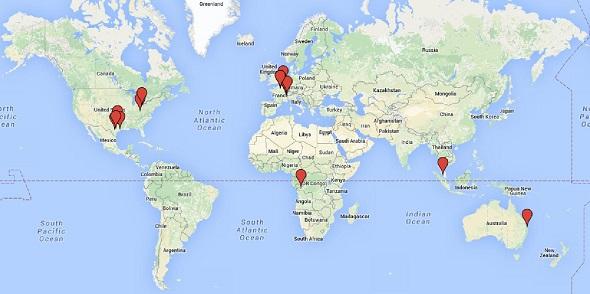
Article(s)
Calendar of events for World Day 2015
By World Coalition Against the Death Penalty, on 15 September 2015
Browse the schedule and the map to prepare and promote the events planned around the world on the big day.
2015
Drug Offenses
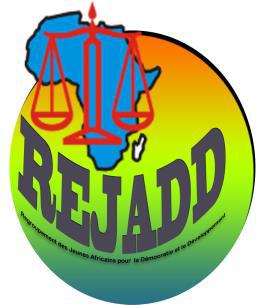
Member(s)
REJADD-Togo
on 30 April 2020
The Young African Group for Democracy and Development, Togo-chapter (REJADD-Togo) is an organization promoting and protecting human rights and humanitarian actions. It was officially created on August 11, 2006 and currently has an official chapter in Mali. The REJADD-Togo aims to contribute to the sustainable, integral and harmonious development of Africa in general and Togo […]
2020
Togo

